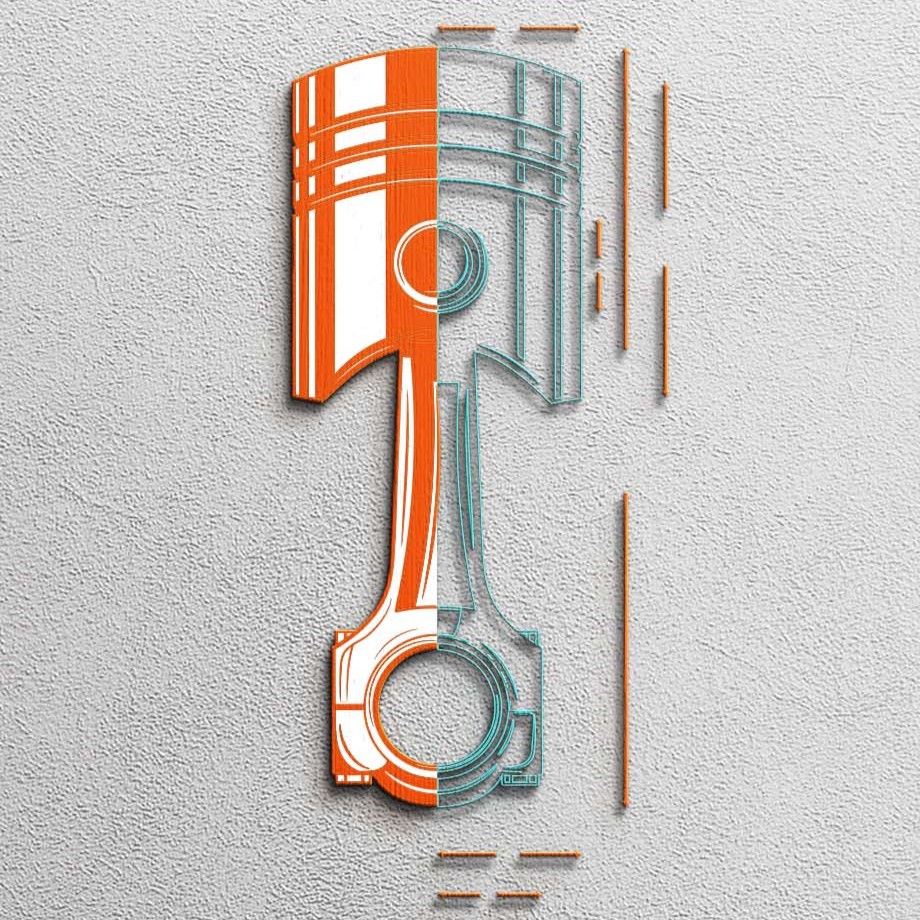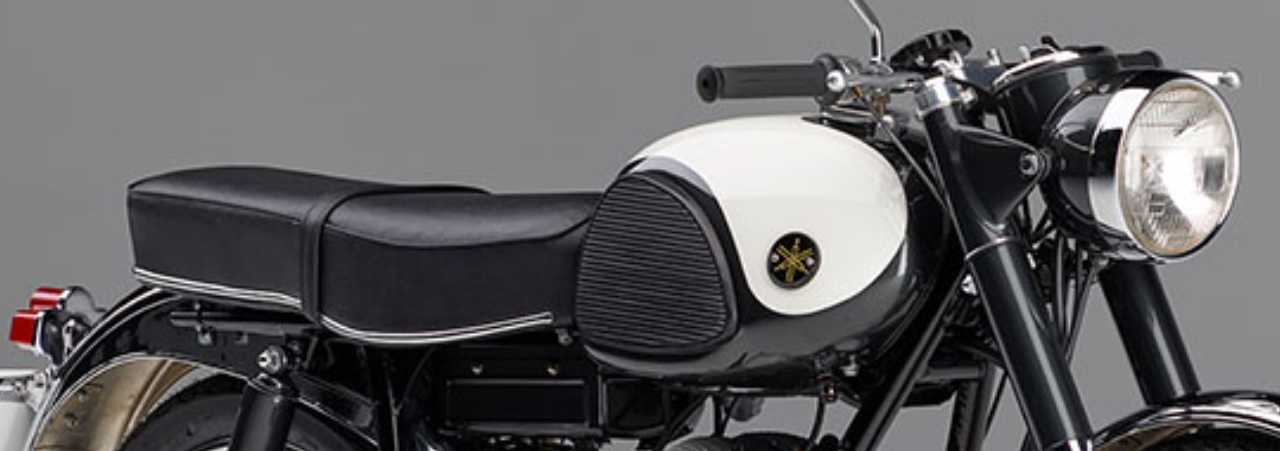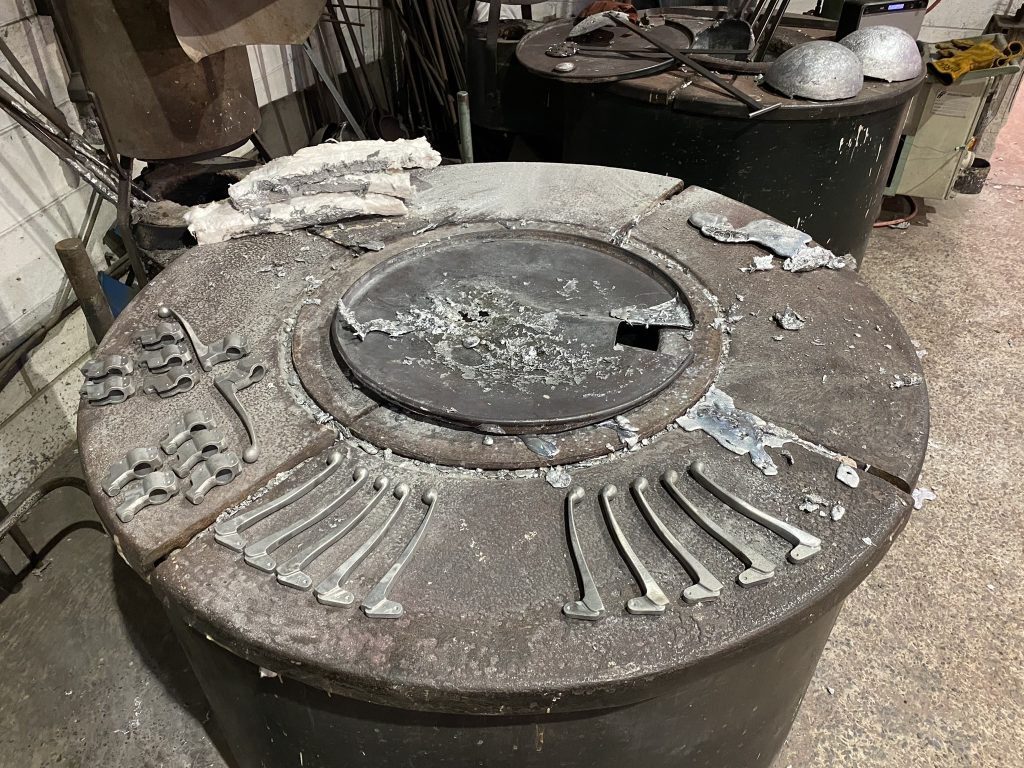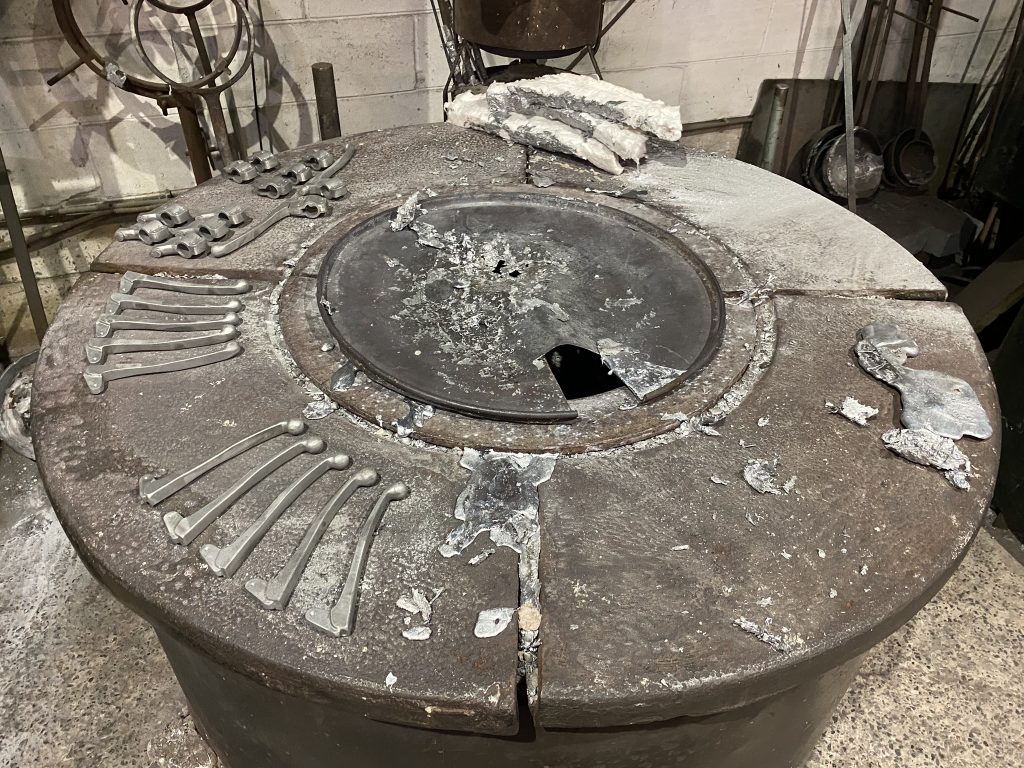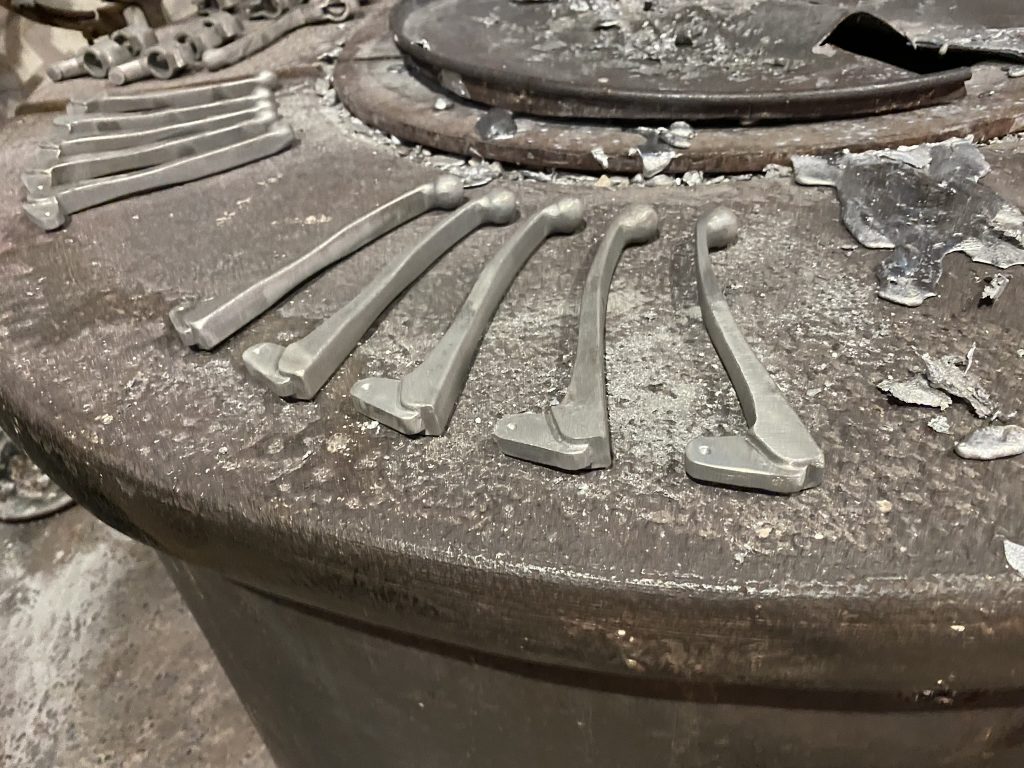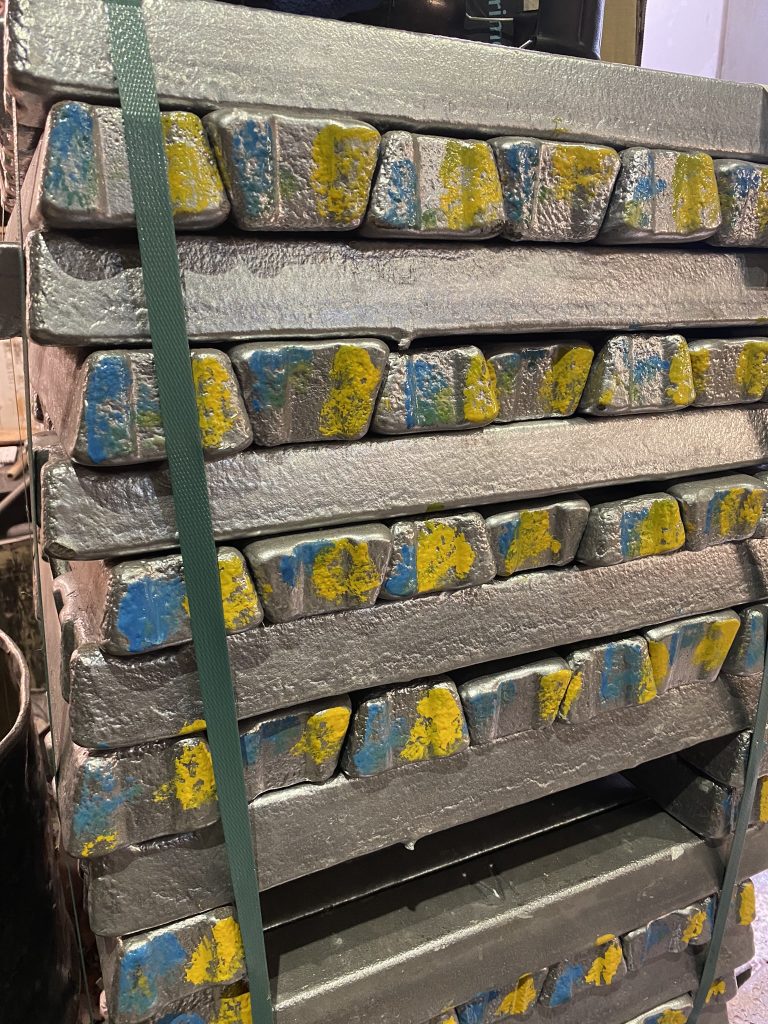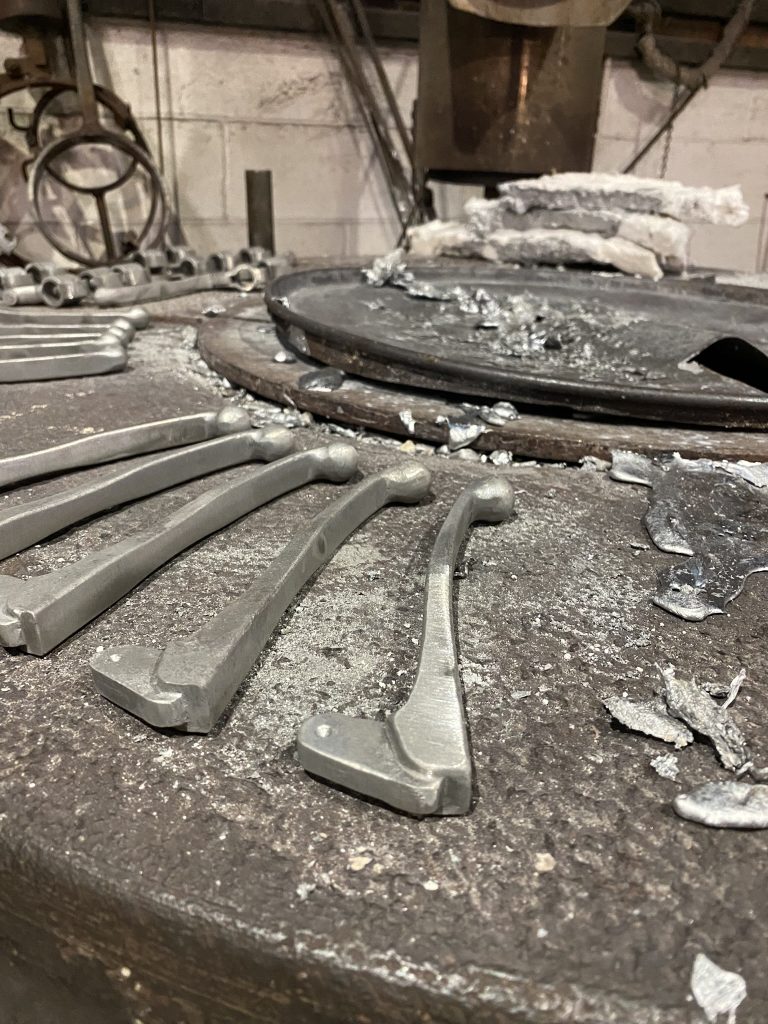Background: This is an update to an ongoing project to Reverse Engineer and re-manufacture brake and clutch brackets with levers for Yamaha YDS 2 and YDS 3 motorcycles.
Creation of Digital Twins of the original parts and manufacture of the patterns for these were covered in a previous post.
A few weeks ago Harling Foundries in Hastings, UK, cast the first batch of parts using LM25 aluminium.
Harlings have cast eight YDS 2 brackets, eight YDS 3 brackets and sixteen levers. The original customer request was for the brackets only. We decided to reverse engineer the levers as well to have control over supply of the complete assembly. Also, more importantly, having a good quality fit between the bracket and lever. The parts in the pictures are resting on the furnace used to melt the aluminium. The furnace capacity is up to 175kg of metal to each melt.
The team at Harlings are expert at casting and it shows in the parts they produce. The skill set of these foundry-men / women is, at the very least, a mixture of engineering, material science, metallurgy, pattern design, etc. Casting parts of this quality is a true craft, not dissimilar, to thatched roofing, stone masonry, etc. that can take many years to master.
Post casting, these parts have been trimmed of pattern parting lines and heat treated. Heat treatment of these parts was to “fully heat treated” standard (LM25-TF) that includes 4-12 hours at 525-545 degrees C then quenched in hot water. The parts then undergo a ‘precipitation treatment’ of 8-12 hours at 155-175 degrees C. Heat treatment artificially ages the parts, making them harder and therefore easier to machine and enhances the material properties, and therefore performance, of the finished parts.
In the modern world of CNC machines and 3D printers, it is fascinating to be involved with more traditional manufacturing methods like casting – roll on the next project that requires cast parts.
Machining and finishing will be the topic for the next post.
